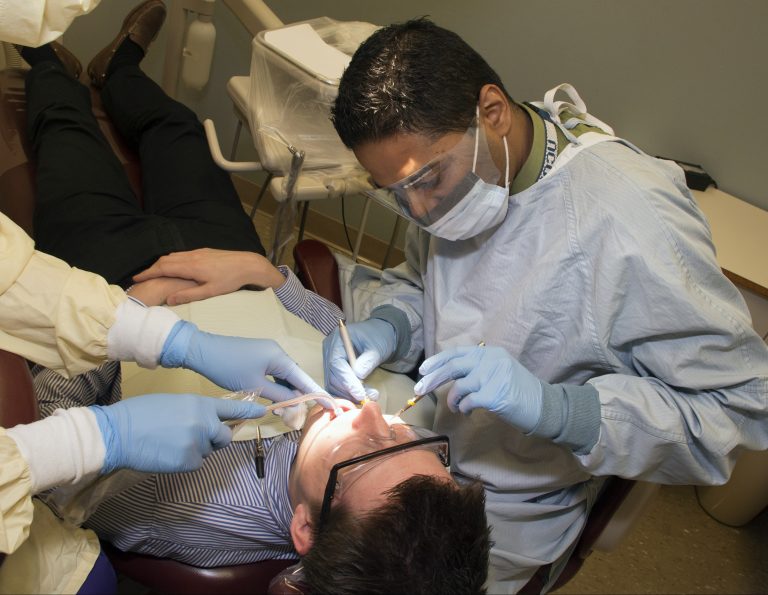UConn School of Dental Medicine’s Dr. Avinash Bidra is the lead author of the first national clinical practice guidelines for the care of patients with dental restorations such as crowns, bridges, veneers and implants.
According to the recently published clinical practice guidelines of the American College of Prosthodontists in the January issue of Journal of Prostheticsa dental professional should help their patient maintain their restored teeth or implants for a longer period of time or even a lifetime, with routine dental exams at least every 6 months and ongoing education on the best individual home maintenance regimen.

“At least twice a year, clinical examinations to clean, adjust, repair and/or replace tooth- or implant-supported restorations are new information for patients and the community about the lifelong need for dental maintenance,” he said. Bidra, lead author of the new guidelines. who is a prosthodontist in the Department of Restorative Sciences and director of Graduate Prosthodontics at the UConn School of Dental Medicine.
Prosthodontists are dentists with advanced training in restoring or replacing damaged or missing teeth to improve their appearance and function.
“Prosthetists often take great pride in meticulously restoring smiles so they look as natural as possible,” said Bidra. “Patients with multiple restorations supported by natural teeth or implants should know that professional and home maintenance is a lifelong treatment. We tell professionals what guidelines to follow and what to tell patients about home maintenance.”
To maintain your dental restorations or implant restorations, Dr. Bidra recommends you:
- Have a dental exam and cleaning at least every 6 months.
- Follow your dentist’s personalized maintenance recommendations at home.
- Brush your teeth with a fluoride toothpaste at least twice a day.
- Floss your teeth at least once a day.
- Use a mouthwash recommended by your dentist.
- Wear a night guard regularly if recommended by your dentist to protect your restorations.
- Do not smoke or chew tobacco.
- Watch your diet carefully and avoid a diet high in sugar.
“This is news that oral health providers can comfortably share to preserve patients’ implants, crowns and veneers, and natural teeth,” says Bidra.
Clinical practice guidelines have not been used as much in dentistry as in medicine. That is why the ACP led a scientific panel of experts appointed by the American Dental Association (ADA), the Academy of General Dentistry (AGD), the American Dental Hygienists Association (ADHA), and the ACP, who evaluated and critically discussed the findings from two comprehensive systematic reviews covering ten years of scientific literature on the assessment of the risk of failure of dental and implant restorations.
In honor of the upcoming National Prosthetic Awareness Week (NPAW) April 3-9, the scientific articles and clinical practice guidelines are available online for free, notes Bidra, who is the national chair for NPAW.
Download the articles for free, here.

